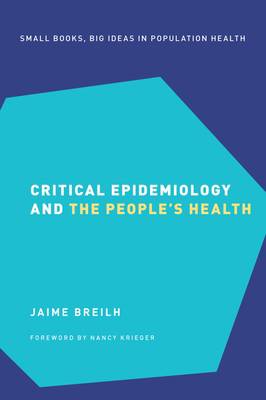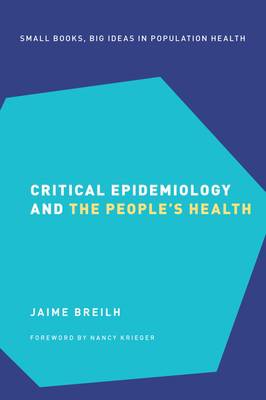
- Afhalen na 1 uur in een winkel met voorraad
- Gratis thuislevering in België vanaf € 30
- Ruim aanbod met 7 miljoen producten
- Afhalen na 1 uur in een winkel met voorraad
- Gratis thuislevering in België vanaf € 30
- Ruim aanbod met 7 miljoen producten
Zoeken
Omschrijving
An indispensable read for all those seeking to address the severe problems of local and global human health and environmental crises The widespread growth of monopolies and big business has led to a fourth industrial revolution focused on producing fast, living fast, and dying fast for the sole benefit of accelerated profit. Despite unprecedented accumulations of wealth and industry, the world has watched as indicators of income inequality--a partial parameter of social inequity--have increased, while big business, with their nearly unrestricted influence, has increasingly distorted advancements in medical research. Bold and incisive, Critical Epidemiology and the People's Health invites readers to the next great paradigm in public health by promoting a progressive, transdisciplinary, intercultural, community-building approach radically divergent from the presiding object-based, empiricist mode of thinking. A concise overview of the Latin American Social Medicine movement, this book introduces the work of leading scientist Jaime Breilh to a global English audience, focusing on key questions such as: What are the real challenges facing critical epidemiology during the current time of immense turmoil and inequity? How can we conduct responsible and sensitive public health research? What role does epidemiology play in addressing the societal ills of both the global North and South? And how can we create a more rigorous, updated, and effective epidemiology? In addressing these questions, Critical Epidemiology and the People's Health offers readers a clear-eyed and much-needed perspective on how to overcome Cartesian reductionism with renewed methodological tools to address the rampant growth of injustices harming our global collective health and to subvert the reigning notions of health prevention and promotion.
Specificaties
Betrokkenen
- Auteur(s):
- Uitgeverij:
Inhoud
- Aantal bladzijden:
- 280
- Taal:
- Engels
- Reeks:
Eigenschappen
- Productcode (EAN):
- 9780190492786
- Verschijningsdatum:
- 22/01/2021
- Uitvoering:
- Hardcover
- Formaat:
- Genaaid
- Afmetingen:
- 130 mm x 180 mm
- Gewicht:
- 340 g

Alleen bij Standaard Boekhandel
+ 144 punten op je klantenkaart van Standaard Boekhandel
Beoordelingen
We publiceren alleen reviews die voldoen aan de voorwaarden voor reviews. Bekijk onze voorwaarden voor reviews.











